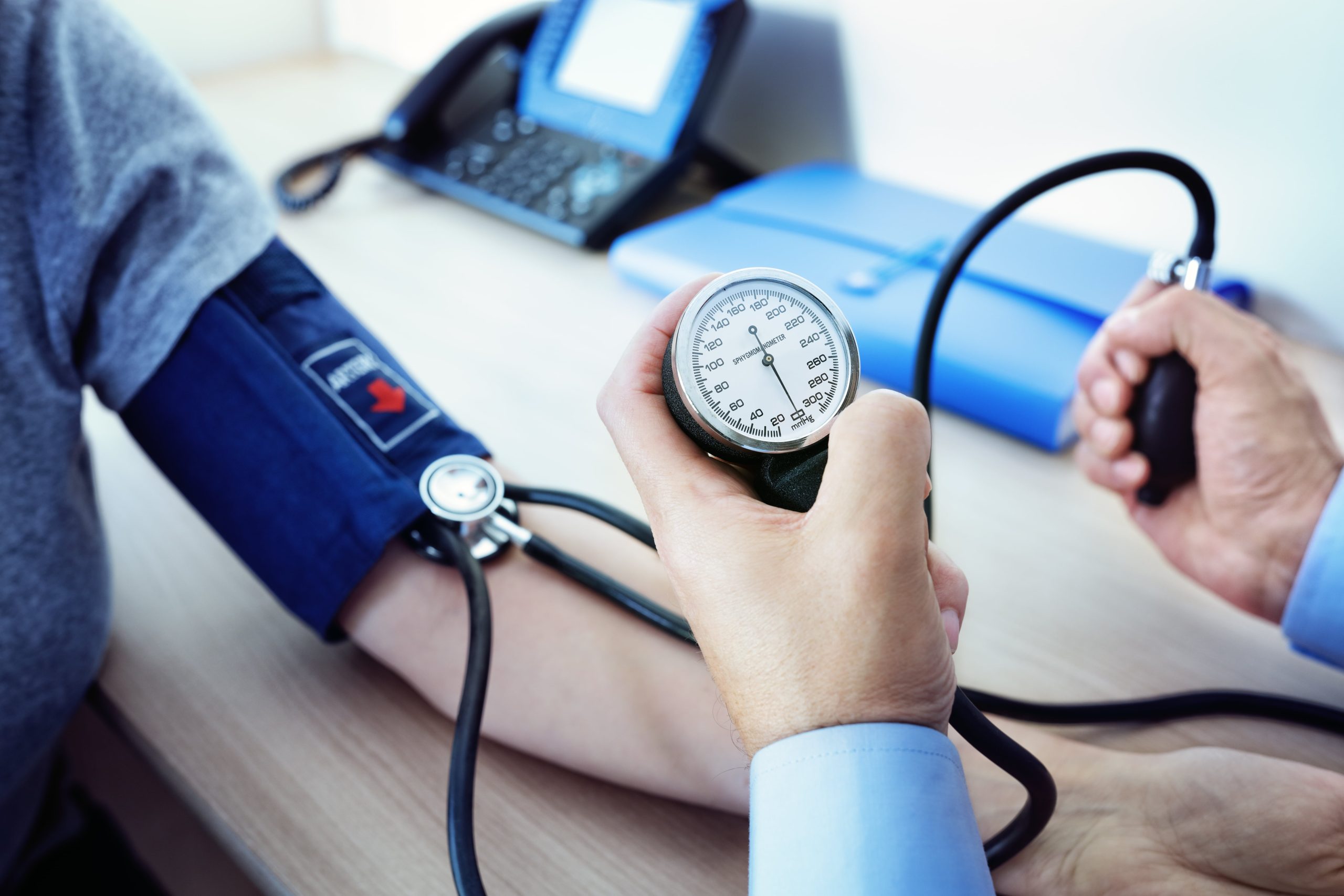How to Lower Blood Pressure: Effective Strategies and Natural Remedies
9 September 2022

High blood pressure, also known as hypertension, is a common health condition that affects millions of people worldwide. It is often referred to as the ‘silent killer’ because it often has no symptoms but can lead to serious health complications if left unmanaged. If you are looking for ways to lower your blood pressure and reduce the risk of hypertension, you’ve come to the right place. In this article, we will explore effective strategies and natural remedies to help you achieve optimal blood pressure levels and improve your overall health. In other words: you will learn how to lower your blood pressure.
Understanding Blood Pressure
Before we delve into the methods to lower blood pressure, it’s important to understand what blood pressure is and how it is measured. Blood pressure refers to the force exerted by the blood against the walls of the arteries as it flows through them. It is measured using two numbers: systolic pressure (the top number on a blood pressure reading) and diastolic pressure (the bottom number). The systolic pressure is the force when the heart beats, while the diastolic pressure is the force when the heart is at rest between beats.
A normal blood pressure reading is typically around 120/80 mmHg (millimetres of mercury). However, if your blood pressure consistently reads 130/80 mmHg or higher, you may be diagnosed with hypertension. It is important to consult with a healthcare professional for an accurate diagnosis and personalised treatment plan.
Factors That Can Influence Blood Pressure
Understanding the factors that contribute to high blood pressure is essential in effectively managing and lowering it. Several factors can influence blood pressure levels, including:
- Lifestyle habits: unhealthy lifestyle habits such as a poor diet high in sodium, low physical activity, excessive alcohol consumption, smoking, and chronic stress can contribute to elevated blood pressure. Recognising these habits and making necessary changes is crucial for long-term blood pressure management.
- Family history: genetics can play a role in hypertension. If you have a family history of high blood pressure, you may have a higher risk of developing it yourself. While you cannot change your genetics, being aware of your predisposition can motivate you to adopt a healthier lifestyle to mitigate the risk.
- Age: blood pressure tends to increase with age. This is partly due to the natural stiffening and narrowing of arteries over time. As you get older, it becomes increasingly important to prioritise blood pressure management and implement lifestyle modifications to keep it within a healthy range.
- Weight: excess body weight, especially around the waistline, can contribute to high blood pressure. Losing weight through a combination of a healthy diet and regular exercise can significantly lower blood pressure and improve overall cardiovascular health.
- Medical conditions: certain medical conditions, such as diabetes, kidney disease, and sleep apnea, can increase the risk of hypertension. Managing these conditions effectively, in conjunction with lifestyle changes, is essential for controlling blood pressure.
By understanding these contributing factors, you can make informed decisions and take proactive steps to lower your blood pressure. Remember, the journey to lower blood pressure is unique for each individual, and a multifaceted approach is often necessary.



Effective Strategies to Lower Blood Pressure
Lowering blood pressure is a vital step in maintaining optimal cardiovascular health. Fortunately, there are effective strategies that can help you achieve and maintain healthy blood pressure levels. By adopting a holistic approach that combines lifestyle modifications, you can take control of your blood pressure and reduce the risk of hypertension.
We will explore some of the most effective strategies to lower blood pressure naturally. From adopting a healthy diet to engaging in regular physical activity, maintaining a healthy weight, limiting alcohol consumption, quitting smoking, and reducing stress, each strategy plays a crucial role in promoting optimal blood pressure levels.
By incorporating these strategies into your daily routine, you can not only lower your blood pressure but also improve your overall well-being. So, let’s dive in and discover how these lifestyle changes can make a significant impact on your cardiovascular health.
- Adopt a healthy diet: a nutritious and balanced diet plays a crucial role in managing blood pressure. Incorporate foods rich in potassium, such as bananas, spinach, and avocado, as this mineral helps to regulate blood pressure. Reduce your sodium intake by avoiding processed foods and opting for fresh, whole foods instead.
- Engage in regular physical activity: regular exercise is not only beneficial for weight management but also helps lower blood pressure. Aim for at least 150 minutes of moderate-intensity aerobic activity, such as brisk walking or cycling, every week. Find activities you enjoy and incorporate them into your routine, preferably a combination of aerobic exercise, strength training, and flexibility exercises.
- Maintain a healthy weight: excess weight puts extra strain on the heart and increases the risk of high blood pressure. By maintaining a healthy weight through a combination of a balanced diet and regular exercise, you can significantly reduce the risk of hypertension.
- Limit alcohol consumption: drinking alcohol in moderation is generally acceptable, but excessive alcohol consumption can lead to high blood pressure. Men should limit their intake to two standard drinks per day, while women should limit theirs to one.
- Quit smoking: smoking tobacco products can raise blood pressure and damage blood vessels, increasing the risk of hypertension. Quitting smoking not only benefits your blood pressure but also improves overall health.
- Reduce stress: chronic stress can contribute to high blood pressure. Engage in stress-reducing activities such as yoga, meditation, or hobbies that you enjoy. Find healthy ways to manage and cope with stress to promote optimal blood pressure levels.
Natural Remedies to Lower Blood Pressure
In addition to lifestyle modifications, certain natural remedies can complement your efforts to lower blood pressure if you are looking for methods on how to reduce blood pressure. It’s important to note that natural remedies should be used as a complement to, not a substitute for, medical treatment. Always consult with your healthcare provider before incorporating any new remedies into your routine. Here are some natural remedies to consider:
- Garlic: garlic has been used for centuries to promote cardiovascular health. It contains compounds that may help relax blood vessels and reduce blood pressure. Incorporate fresh garlic into your meals or consider taking a garlic supplement after consulting with your doctor.
- Hibiscus tea: hibiscus tea has been shown to have potential blood pressure-lowering effects. It contains antioxidants that may help relax blood vessels and reduce hypertension. Brew a cup of hibiscus tea and enjoy it as a refreshing and natural way to support healthy blood pressure levels.
- Coenzyme Q10 (CoQ10): CoQ10 is an antioxidant that is naturally produced by the body. It plays a vital role in energy production within cells and has been linked to cardiovascular health. Some studies suggest that CoQ10 supplementation may help lower blood pressure. Consult with your healthcare provider to determine if CoQ10 supplementation is suitable for you.
- Omega-3 fatty acids: omega-3 fatty acids, found in fatty fish like salmon and sardines, have been associated with numerous health benefits, including cardiovascular health. They may help reduce inflammation and lower blood pressure. Consider incorporating omega-3-rich foods into your diet or talk to your doctor about omega-3 supplements.
- Magnesium: magnesium is an essential mineral that plays a role in many bodily functions, including blood pressure regulation. Increasing your magnesium intake through dietary sources like leafy green vegetables, nuts, and seeds may have a positive impact on blood pressure levels.
- Relaxation techniques: incorporating relaxation techniques into your daily routine can help reduce stress levels and promote healthy blood pressure. Try deep breathing exercises, progressive muscle relaxation, or mindfulness meditation to find what works best for you.
Good to know: natural remedies may vary in effectiveness for different individuals with a lower blood pressure. It’s crucial to consult with your healthcare provider before starting any new supplements or herbal remedies, especially if you are taking medication or have underlying health conditions.
Also Consider This…
In addition to the lifestyle habits and natural remedies discussed, there are a few more points to consider for a comprehensive approach to lowering blood pressure and maintaining cardiovascular health:
- Alcohol moderation: while moderate alcohol consumption may have some health benefits, excessive drinking can raise blood pressure. If you choose to drink alcohol, do so in moderation. For men, this means consuming no more than two drinks per day, and for women, it’s advisable to limit intake to one drink per day.
- Social support: surrounding yourself with a supportive network of family, friends, or even joining support groups can positively impact your blood pressure management. Sharing your goals and progress with others can provide encouragement, accountability, and motivation along your journey.
- Pharmacological interventions: in some cases, lifestyle changes and natural remedies may not be sufficient to lower blood pressure. If your blood pressure remains high despite your efforts, your healthcare provider may recommend medication to help manage hypertension. It’s essential to follow their guidance, take prescribed medications as directed, and attend regular check-ups to monitor your progress.
- Regular blood pressure checks: even if you have successfully lowered your blood pressure, it’s important to continue monitoring it regularly. Regular checks allow you to stay informed about your current blood pressure levels and take necessary actions if there are any fluctuations. Home blood pressure monitors are convenient tools for tracking your readings between doctor visits.
- Educate yourself: keep up-to-date with the latest information about blood pressure management. Stay informed about new research, guidelines, and recommendations regarding lifestyle changes, natural remedies, and medical interventions. Knowledge empowers you to make informed decisions and take control of your health.
Monitoring and Lifestyle Changes for Long-Term Success
Monitoring your blood pressure is crucial for tracking your progress and ensuring that your efforts to lower blood pressure are effective. Alongside monitoring, implementing certain lifestyle changes can further contribute to long-term success in maintaining healthy blood pressure levels. Here are some additional tips to consider:
- Limit salt intake: sodium, found in table salt and many processed foods, can contribute to high blood pressure. Reduce your salt intake by cooking meals from scratch using fresh ingredients and flavouring your food with herbs and spices instead of salt. Read food labels carefully and opt for low-sodium or sodium-free products whenever possible.
- DASH diet: the Dietary Approaches to Stop Hypertension (DASH) diet is a well-known eating plan that emphasises fruits, vegetables, whole grains, lean proteins, and low-fat dairy products. It is low in sodium and high in potassium, calcium, and magnesium, which are beneficial for blood pressure management. Consider following the DASH diet under the guidance of a healthcare professional.
- Moderate caffeine consumption: while moderate caffeine intake is generally safe for most individuals, excessive consumption may temporarily increase blood pressure. Limit your intake of caffeinated beverages like coffee, tea, and energy drinks. Opt for decaffeinated alternatives or herbal teas instead.
- Get sufficient sleep: inadequate sleep or poor sleep quality can contribute to high blood pressure. Aim for seven to nine hours of quality sleep per night. Establish a regular sleep routine, create a comfortable sleep environment, and practise good sleep hygiene habits.
- Manage chronic conditions: chronic conditions such as diabetes and high cholesterol can increase the risk of high blood pressure. Work with your healthcare provider to manage these conditions effectively through medication, lifestyle changes, and regular monitoring.
- Supportive supplements: certain supplements may complement a healthy lifestyle and contribute to blood pressure management. Discuss with your healthcare provider whether supplements such as fish oil, potassium, or magnesium are appropriate for you and your specific needs.
- Stay hydrated: proper hydration is important for overall health, including blood pressure regulation. Aim to drink an adequate amount of water throughout the day. Remember that hydration needs can vary based on individual factors such as activity level and climate.
Be aware that lifestyle changes require commitment and consistency. It’s essential to work with your healthcare provider to develop a personalised plan that suits your specific needs and medical history. Regular check-ups and discussions with your doctor will help ensure that you stay on track and make any necessary adjustments to your blood pressure management plan.
Wrap-Up
The journey to lower and maintain healthy blood pressure levels is a continuous process that requires commitment and perseverance. By implementing the strategies and lifestyle changes discussed throughout this article, you have the power to positively impact your cardiovascular health.
Once you know how to lower blood pressure, it’s important to remember that progress may take time, and each individual’s journey is unique. Embrace every small victory and use it as motivation to continue on your path towards optimal blood pressure levels. Celebrate your efforts and achievements, no matter how big or small they may seem.
Consistency is key. Stay dedicated to your healthy diet, regular exercise routine, stress management practices, and blood pressure monitoring. These actions, when combined with professional guidance and support, can lead to significant improvements in your overall well-being.
Additionally, don’t hesitate to reach out to healthcare professionals for assistance and advice. They can provide personalised recommendations based on your specific needs and medical history. Regular check-ups and discussions with your doctor will help ensure that you stay on track and make any necessary adjustments to your blood pressure management plan.
Remember, you have the ability to take control of your cardiovascular health. Embrace this opportunity, stay motivated, and keep prioritising your well-being. With persistence and determination, you can successfully lower your blood pressure, reduce the risk of hypertension, and enjoy a healthier and more vibrant life.
Tags
You may like these too
“The Hidden Dangers of Varicose Veins: When Ornate Legs Are in Danger”
Discover the unexpected causes, symptoms, and latest varicose vein treatments that can affect your h
24 January 2025
“The Inaudible Burden: How Tinnitus Can Change Your Life”
“Discover the hidden battle against the constant buzz in your ears and learn how to rega
24 January 2025
“Migraine: More than just headaches”
“Discover the hidden causes, effective treatments and tips to overcome the daily battle agains
24 January 2025
How to Lower My High Cholesterol:Tips and Advice for a Healthier Heart
Cholesterol is a common health problem that can lead to serious complications such as cardiovascular
17 April 2024



